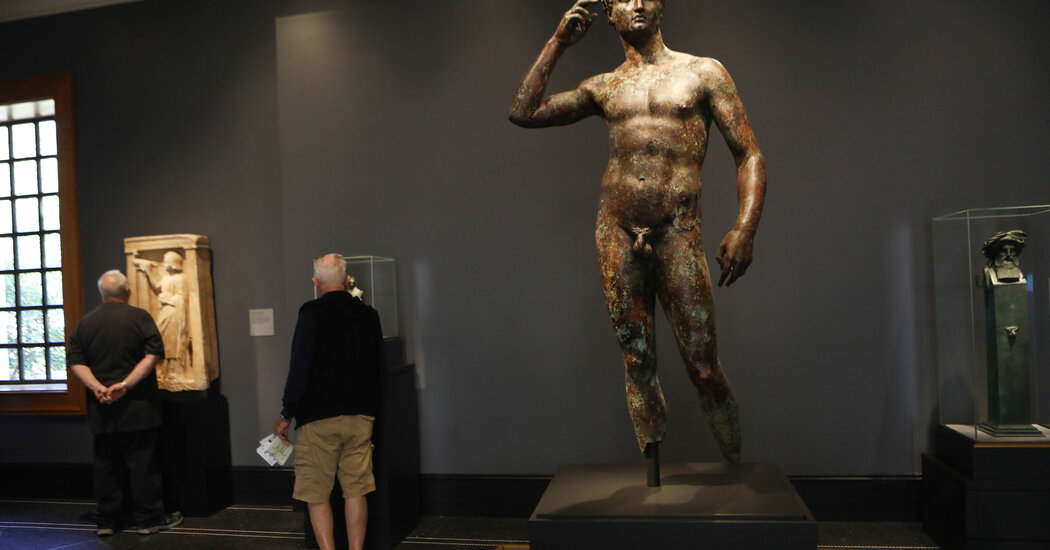The Court is a court of the Council of Europe and rules on cases where there are allegations of violations of civil or political rights by member states that have agreed to accept its jurisdiction. Thursday's ruling was handed down by seven judges from different countries.
In the ruling the Court found that there had been no violation by Italy.
“It couldn't have gone any other way,” said Lorenzo D'Ascia, an Italian government lawyer involved in the case. He noted that the European Court has stated that there is international consensus on the need to protect cultural property from looting. The ruling also confirmed the legitimacy of the confiscation of works obtained illicitly and their return to the country of origin. “It's an important ruling,” he said.
The relationship between the Getty and Italian cultural officials has long been tense.
Marion True, a Getty curator who with another curator, Jiri Frel, had helped build one of the most important collections of ancient art in the United States, was tried in Rome in 2005, accused of receiving stolen artifacts from Italy and having conspired to deal with it. The case against True ended abruptly in 2010, after a court ruled that the statute of limitations on her alleged crimes had expired.
While the case was in court, Italy began negotiating with the Getty for the return of some of the works identified as looted. The talks were contentious and at one point stalled over the statue.
An initial agreement with the museum was reached in September 2007, when the Getty agreed to return 40 antiquities claimed by Italy, although the statue was excluded from the negotiations. Since then, the Getty has returned numerous artifacts claimed by Italy, including three terracotta figures depicting “Orpheus and the Sirens,” dating to around 300 BC, which caused a stir in Italy when they were returned two years ago.
Thursday's ruling was a so-called chamber ruling and not a final one. Each party has three months to request that the case be referred to the Grand Chamber of the European Court to assess whether it merited further examination. «But cases in which it goes to the Grand Chamber are rare», explains the lawyer D'Ascia. The Getty said Thursday that it is “carefully considering seeking a review before the Grand Chamber.”





